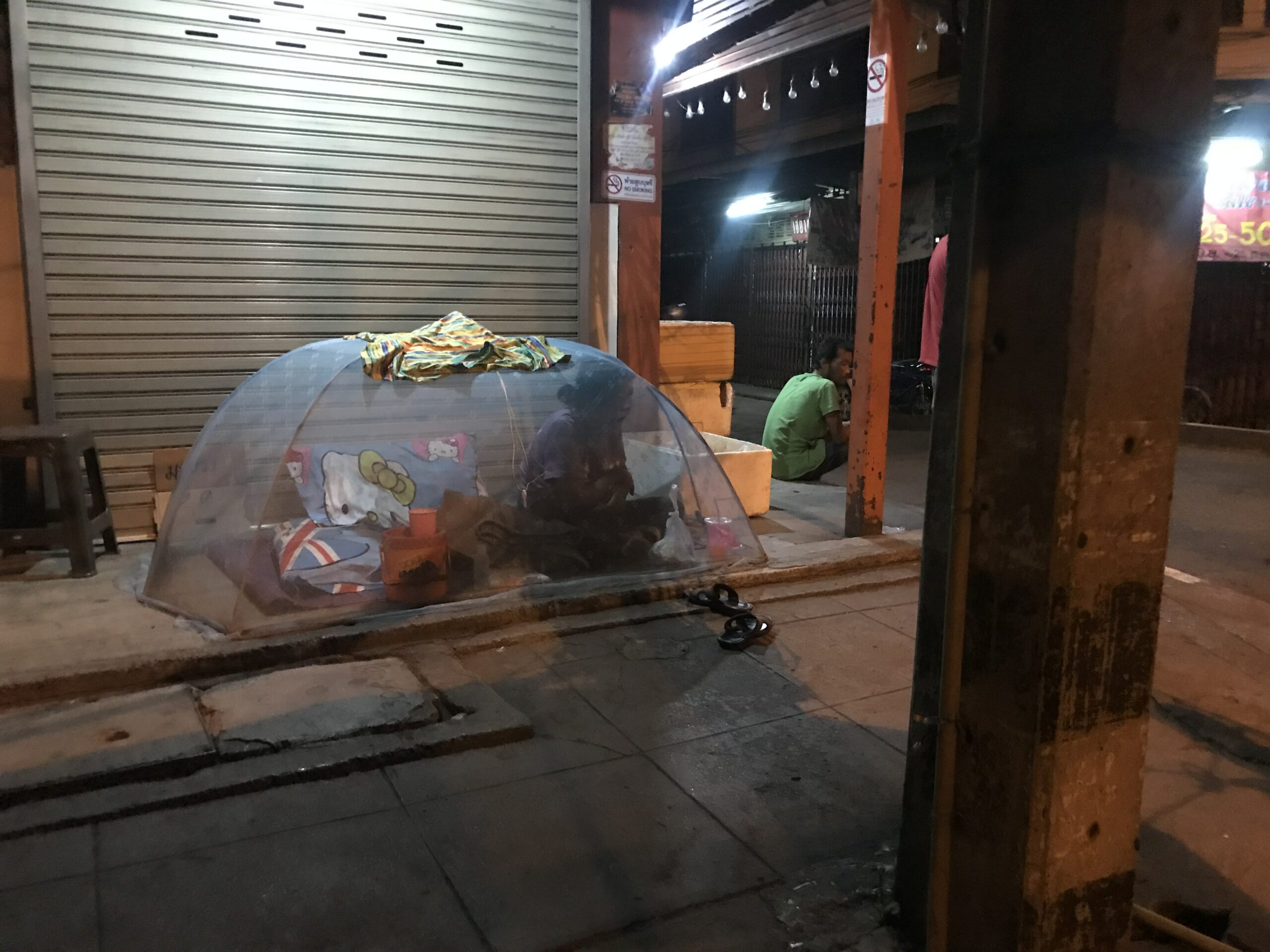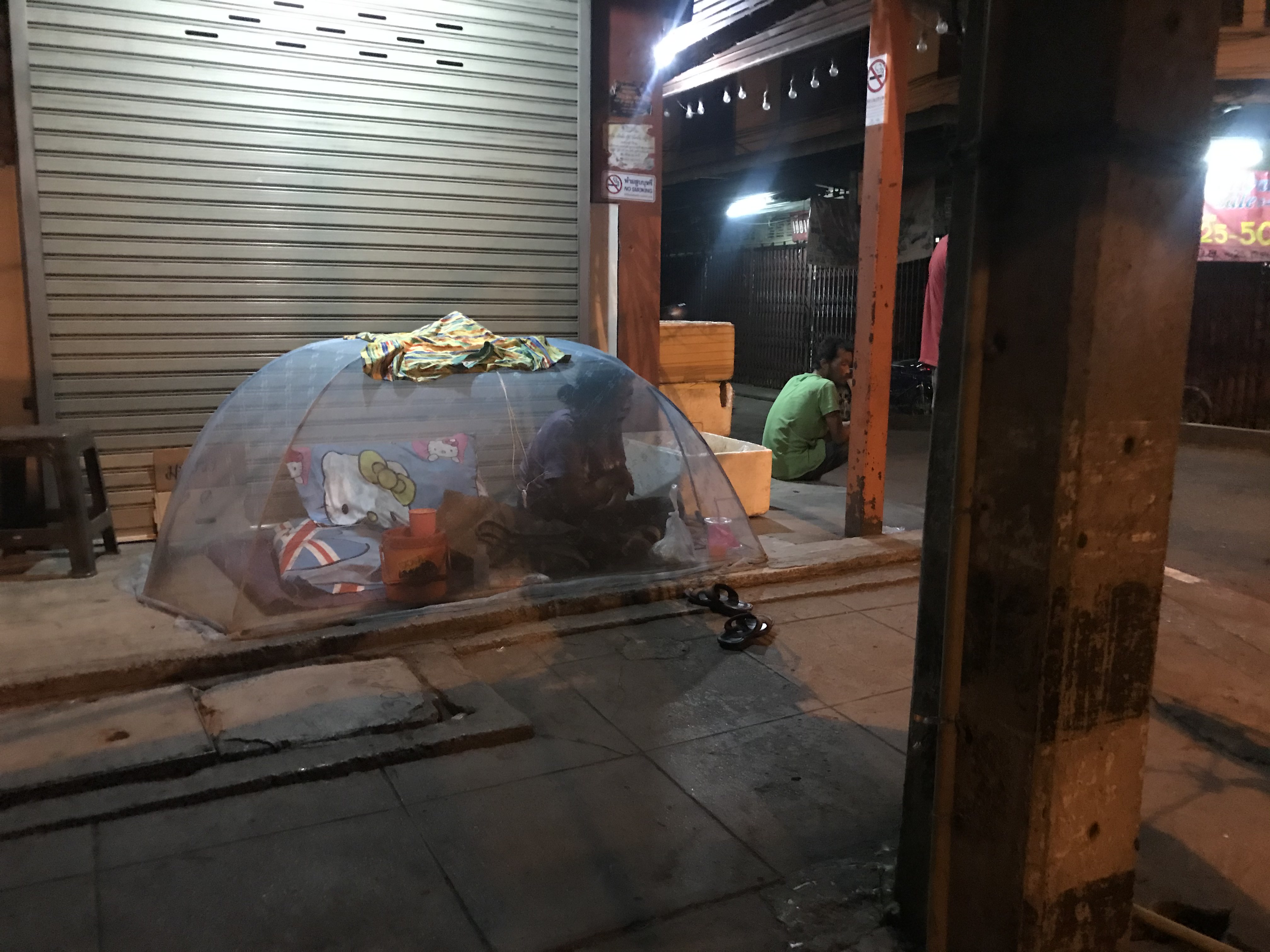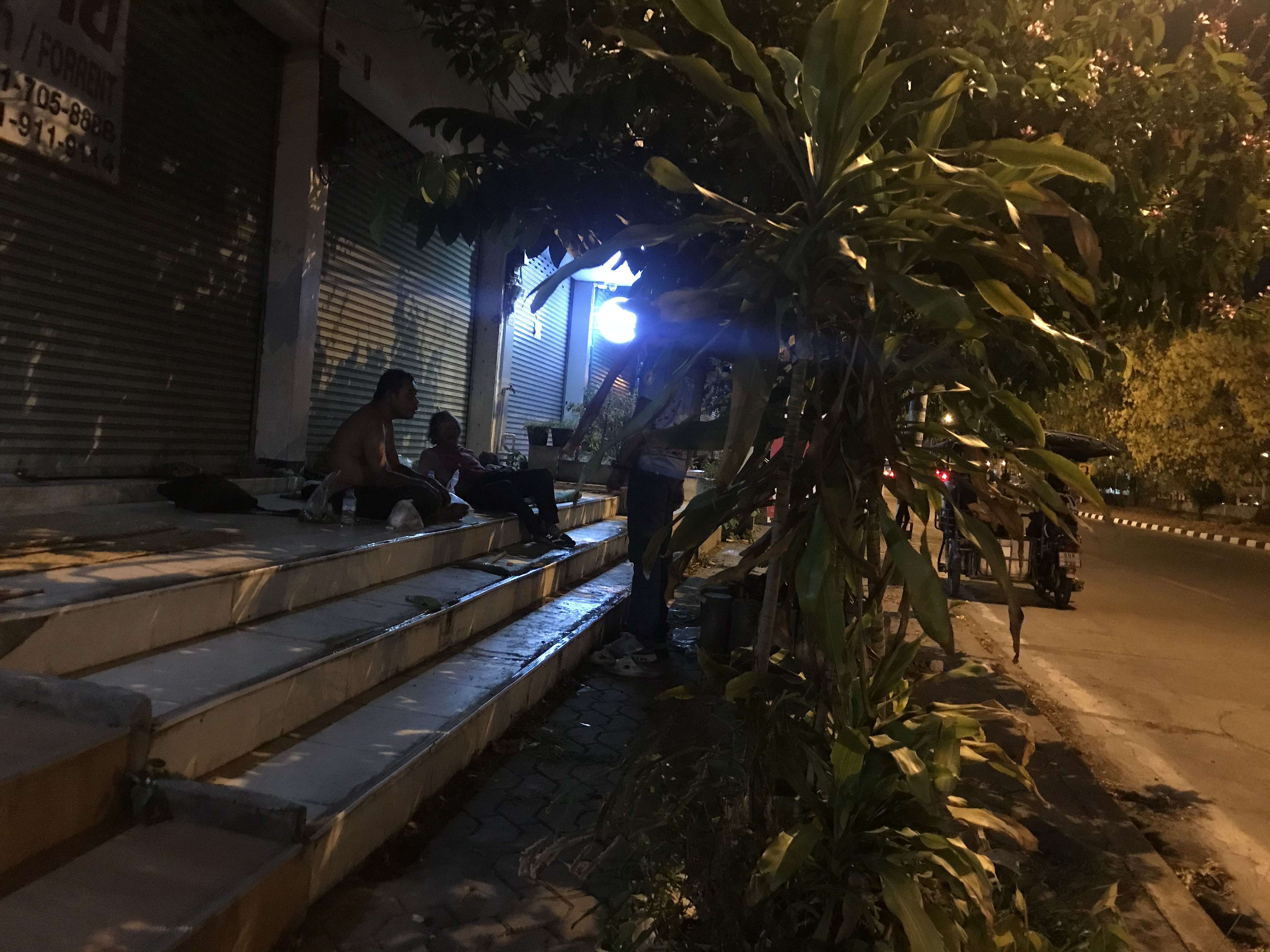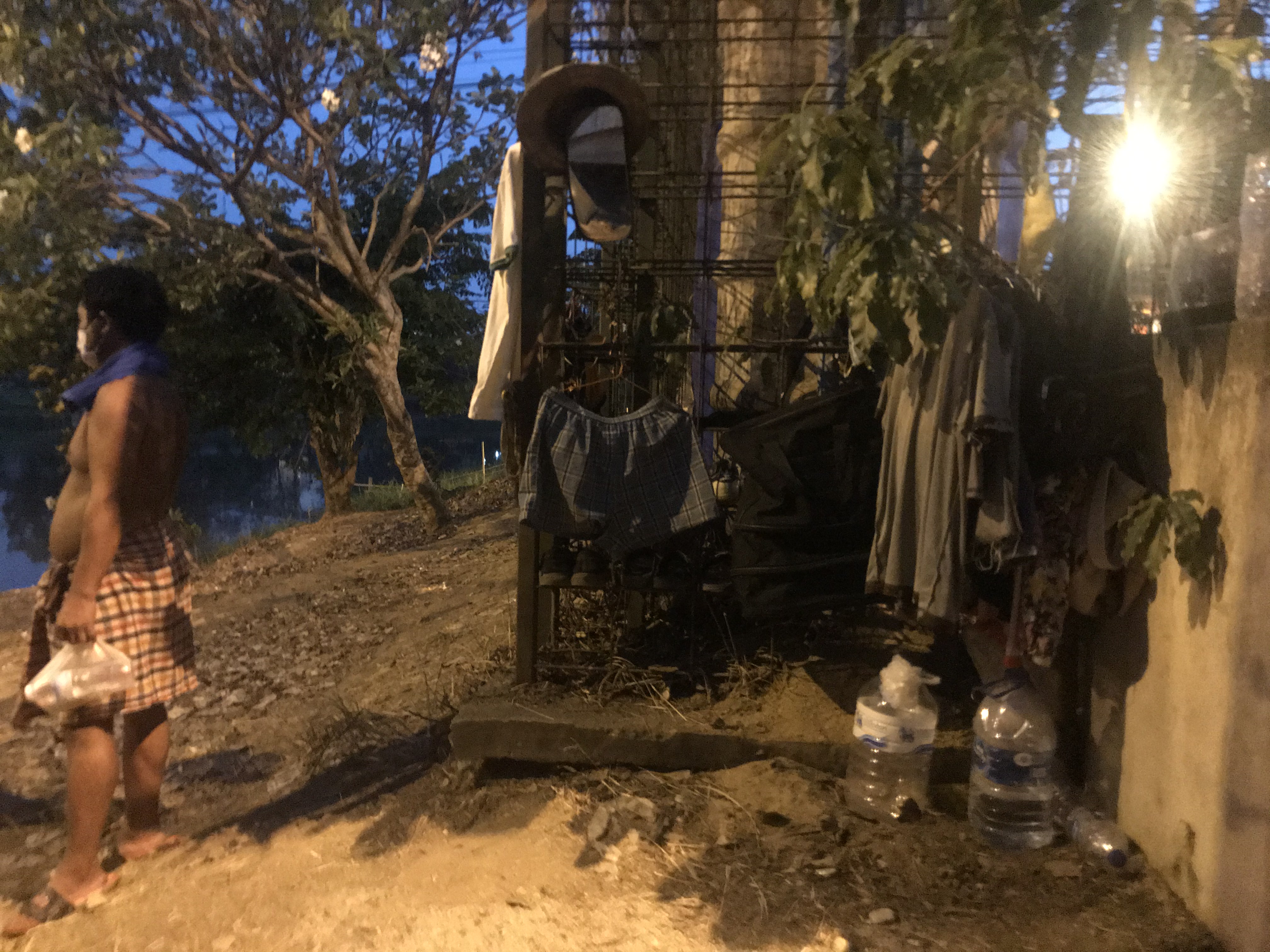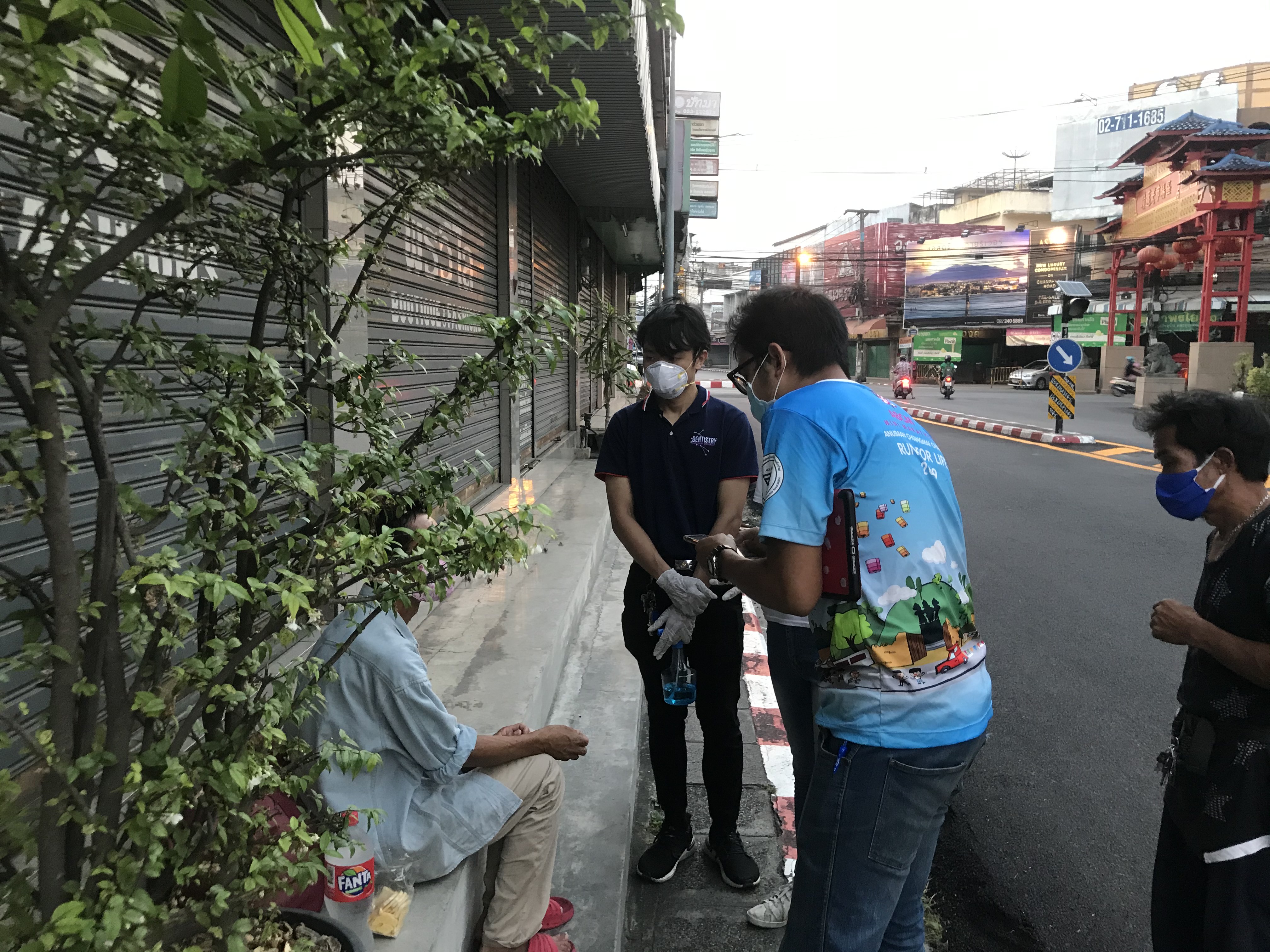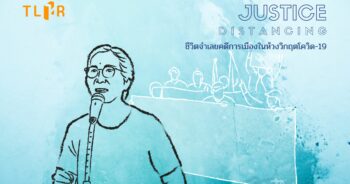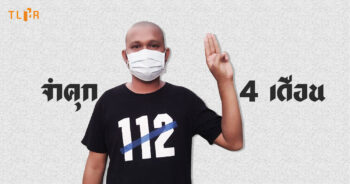In response to the spread of the Covid-19, Thailand’s government has imposed several measures to contain the epidemic and to reduce the number of infected persons. Many of such measures cause grave impacts on the day-to-day life of the people as well.
Among the measures imposed under the Emergency Decree, the government issued a regulation ordering people to refrain from leaving their residence or a curfew ban which prohibits people from leaving their homes during 22.00 – 04.00. with exception for certain groups of people including medical personnel, delivery and logistic personnel, or public officials on duty, etc. The ban has been put in place since 3 April 2020 until present and any person who violates it is punishable by up to two years of imprisonment or a fine not exceeding 40,000 baht or both.
The regulation has caused confusion among many since it was first introduced. People are skeptical if and how the curfew ban would effectively help to contain the virus. Concerns also grow about its unavoidable ramifications on the day-to-day life and livelihood of a number of people
(an image illustrating the life of some rough sleepers in Chiang Mai).
“Homeless” and “rough sleepers” and the enforcement of laws in response to the Covid-19 outbreak
The curfew ban has been predicated on the assumption that everyone must be entitled to a shelter, a ‘home’ where they live. It grossly ignores the fact that a number of people have no access to such permanent shelter, like the so called “homeless” or “rough sleepers”. In many instances, they used to have a home. But due to crises that cost their employment and income and their inability to pay for their homes or their inability to live peacefully in a home, they have to sleep in public places living a rough-sleeping life.
Amidst the Covid-19 outbreak, the authorities are not able to provide for or take care of these people. The measures imposed also carry harsh criminal punishment and it has been enforced by officials at the operational level against such vulnerable population without proper understanding of their existing predicament. As a result, a number of rough sleepers have been held accountable for criminal offences and have to face the legal consequences additionally to their incumbent economic and social hardships.
The Thai Lawyers for Human Rights (TLHR) has been informed that at least two homeless persons in Chiang Mai were arrested for violating the curfew ban and were convicted by the Court, although with suspended imprisonment. They were also fined for the violation.
(an image illustrating rough sleepers in public places in Chiang Ma)
The case of ‘Phi Tuy’
Phi Tuy (pseudonym) sleeps rough around Warorot Market, aka ‘Kad Luang’ in the city of Chiang Mai. He earns his living by helping to push vegetable carts in the market and has been sleeping near the vegetable stall in the market at night. He alleged that;
The night of 5 April 2020, around 22.30, to answer nature’s call, he strayed from the market crossing to the other side of the street by the Ping River, about 20 meters away. After finishing his business, he was crossing back to where he usually slept, but he was intercepted by a patrolling police car. The officials approached him telling him that it was already after 22.00, a curfew time where one is not supposed to leave their homes.
Phi Tuy tried to explain that he slept not far from there, just on the other side of the street. He pled to the police to let him go, but the police insisted he broke the curfew ban and asked him to get in the vehicle and ride with them immediately. Phi Tuy acted in compliance and went with the police.
(an image showing the area behind Warorot Market where the incidence happened with Phi Tuy)
Upon arrival at a Chiang Mai’s Police Station, the police prepared the charge sheet against him for violating the curfew ban and asked Phi Tuy to sign to plead guilty to the charge. Phi Tuy signed the charge sheet to confess to the charge without the presence either of his lawyer or other persons. After that, he was detained in the holding cell at the police station for one night.
The following morning, around 10.00, the police brought him to the Kwaeng Court of Chiang Mai for arraignment. He had no idea what was happening. He was only then informed that the Kwaeng Court of Chiang Mai was yet to accept to review his case. He was then brought back to the Police Station for further custody.
Around 15.00, the police brought Phi Tuy to the Kwaeng Court of Chiang Mai again and this time the Court was ready to hear his case. He was then taken to a holding cell at the basement of the court building. Then, the verdict was read via a television while he was still held in custody in the holding cell. He roughly recalled that the Court found him guilty as charged and sentenced him to six months of imprisonment and a fine of 1,500 baht, although the imprisonment was suspended for one year. And as he could not afford to pay the fine, he was ordered to do time in jail at the rate of 500 baht per day.
Phi Tuy neither had the mean to pay the fine, nor access to ask for help from anyone. He felt helpless and had to accept being jailed for three days in lieu of paying the 1,500-baht-fine. He expected to be taken to the Central Prison, located in Mae Taeng, one of Chiang Mai’s districts. Phi Tuy was waiting in the holding cell until 18.00. Then, the judge read the verdict via television again saying since it was his first time of committing an offence, he would be just reprimanded. He was asked to not repeat the offence. Eventually, Phi Tuy was not transferred to the prison. He was allowed to live in the area behind the Warorot Market again. Since then, at night, Phi Tuy dares not stray on the street again.
As to his work as cart pusher, Phi Tuy said that “there has hardly been any work due to the ‘Co Few’ disease or something like that. Very little work to do. Before I could earn 300-400 baht a day. Now I hardly make even a hundred baht.”
When asked whether he had known that the curfew ban had been imposed to prohibit people from leaving their homes after 22.00 before he was charged, Phi Tuy said, “I had no idea about that. I just crossed the street, from where I slept. Just there. And I was about to go back sleeping again. But the police did not let me off the hook. They said I broke the curfew ban. Well, I could not refuse my culpability. It was a law. Initially, the police told me I could return to my place at 20.00. Then, after I went with them, and after I signed some paper, I had to wait for the court hearing. It took quite a long time. I had to sleep and eat one day and one night in the holding cell. Well, it was my fault. I just did not follow the news.”
The case of ‘Phi Chart’
In another case, Phi Chart (pseudonym) also sleeps rough in Chiang Mai’s Warorot Market and earns his living pushing vegetable carts in the market. He sleeps at the vegetable stall in the market, too. He revealed that;
At night on 6 April 2020 around 21.00, Phi Chart had an appointment with his friends at the Tha Phae Gate. He went by foot from Warorot Market to the meeting place, about 1.5 kilometers away. When he arrived at the meeting spot, his friends were not yet there. He awaited them for a while until he decided to head back.
It was around 22.30, Phi Chart started walking back to the area behind the Warorot Market. He saw a checkpoint near the Tha Phae Gate. There, he was stopped by the police and was told he was not supposed to leave his home and should stay put. Then the police arrested him. Phi Chart pleaded to the officials, telling them that he had no money. When he asked on what charge he was arrested, the police simply said it was already after 22.00.
Phi Chart was taken to a Chiang Mai’s Police Station and was charged. He had to sign the document to plead guilty to the charge. But as he was unable to sign his name, so he was asked to give a fingerprint. There was no lawyer with him throughout the process. He was held in custody in the holding cell at the police station for one night as well.
The following day, around 16.00, the police brought Phi Chart to the Court located at the intersection close to the Chiang Mai bus terminal (the Kwaeng Court of Chiang Mai). Upon arrival at the Court, Phi Chart recounted that he saw an elderly person clad in yellow outfit on the TV monitor and he was told by the person to stand up. He was asked to tell his name, and he did so. Then, the person on the TV screen told him that “Next time, please do not stray from your home after 22.00.”
According to Phi Chart, he could not wrap his head around the process. As far as he could tell, he was fined for 3,000 baht and was ordered to report himself for some criminal purpose at the Mae Rim District Office in late April (probably the Probation Office). As to the fine, a police official who knows him helped to pay for him. So, he was released and returned to stay at his place behind the Warorot Market like before.
In addition, according to the two rough sleepers who were prosecuted and the volunteers who work with homeless and rough sleepers including helping to distribute food to them during the Covid-19 outbreak, there are reports of rough-sleeping homeless people being prosecuted on similar charges in the past two weeks after the curfew ban had been imposed. As far as we know, there are at least ten such cases.
Each case has different details. There are cases of homeless people who just slept roughly in the public park and others who strayed outside during the curfew. The volunteers for homeless only have access to information about certain cases. It has been said that some homeless rough sleepers have been incarcerated at the Central Prison of Chiang Mai in lieu of paying fine pursuant to the sentencing of the Court. But we are not able to obtain all the information.
Commends from volunteers working on homelessness and recommendations of international organizations
According to a survey by volunteers of “Ban Tuam Fun, the rough sleepers of Chiang Mai”, an organization working to support and empower homeless rough sleepers in Chiang Mai and helping them to earn their living and to have a home again, as of May 2019, there are around 150 homeless persons in the city of Chiang Mai, although the actual number could be far higher. This does not include more people who have become homeless in the wake of the Covid-19 outbreak as many people have been laid off and are unable to pay for their places. As a result, many more of them decide to sleep in public places.
Mr. Phawat Pengwanphook, aka ‘Chew’, a fourth year student in the Department of Philosophy, Faculty of Humanities, Chiang Mai University who is a regular volunteer at “Ban Tuam Fun, the rough sleepers of Chiang Mai” shared his opinion regarding the prosecution of rough sleepers during the crisis that “First off, we need to understand that homeless or rough sleepers are people who live in public spaces. Their homes, their doors, are the bank of the river or the market. Their rooftops are the sky. Their sleeping lounge is public spaces. These are the homes of the homeless. Therefore, these people should be entitled to the right to use public spaces for their living in whatever circumstances, even during the crisis like now. If the authorities want to confine the population, they have to come up with measures to accommodate to their needs, instead of pretending to not know about their existence. They really exist, and the government knows this full well.
“The state imposes restrictions without offering remedy. It is like they ask the people to shoulder all the burden by themselves. The homeless have been affected by the state curfew ban. As the curfew also applies to them, where can they stay? The government has simply failed to solve their problem and ignored them. I know, the officials are tasked to enforce the law and perform their duties. They could be subject to investigation (if they fail to enforce the law). It is a policy they have to abide by. Now, once these people are arrested, what will happen? They would be held in custody for a couple of days and released. Otherwise, they could be incarcerated in prison thanks to the sentencing of the Court. It is like throwing a hot potato from one person to another. It fails to solve the problem at the structural level.”
When asked about possible solutions to the problem, Phawat said that “I would like to see solutions at the structural level. At least, when the State issues such restrictions, they should come up with a recourse to remedy. For example, at the moment, hotel business is in a slump being unable to fill their rooms. The government should encourage the hotels to accommodate the rough sleepers. Can they do this? If they can do so, they have the legitimacy to enforce the laws. But the State would not do this, they would cry out that they have no money.”
(The rough sleeper volunteers handing out food)
The Covid-19 outbreak faced by various countries impact the most vulnerable groups, particularly the homeless population. The UN Special Rapporteur on the Right to Adequate Housing has issued the COVID-19 Guidance Note Protection for those living in Homelessness which reiterates the importance that all governments have to protect the rights of the homeless. The expert provided thirteen recommendations as a guidance to the protection of the rights of homeless persons. One of them is for all governments to ensure that homeless people not be charged, fined, or punished as a result of the enforcement of curfew ban or quarantine measures during the Covid-19 outbreak.
The prosecution of the homeless in Chiang Mai simply demonstrates how disease prevention measures imposed by the government has exacerbated the situation of the already vulnerable population making them to suffer even more.
>> For more detail about the 13 recommendations, please see COVID-19 Guidance Note Protection for those living in Homelessness, Leilani Farha Special Rapporteur on the Right to Adequate Housing, 2 April 2020 https://www.ohchr.org/Documents/Issues/Housing/SR_housing_COVID-19_guidance_homeless.pdf
